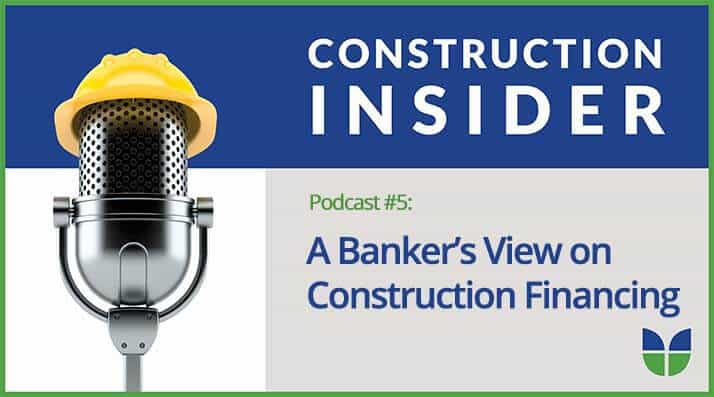Navigating the intricate landscape of construction finance, construction companies often encounter significant hurdles when seeking construction loans from banks. But in order to find solutions, it is always best to start with the blockers. What are the top reasons why banks say no to construction loans? We discuss this question with Mike Matousek, getting his unique insight having spent 14 years as a Senior Loan Officer at BrightBridge Capital and CFO for a construction firm before that.
Unpacking Construction Risk: The Bank’s Perspective for Loans
When talking with construction owners, in almost every discussion we have with them as a new prospect, they tell us something like, “Oh, I’m glad you guys are here, it’s good to know that there are folks that will lend to construction because they just won’t do it. They say it’s too risky.”
When a bank provides a loan, they have a great deal of control over the process – how the funds are dispersed and spent. When lending to construction companies, though, banks have a lack of control and that presents a paramount risk issue. “The reason is unless bankers work exclusively in construction or do it a lot, it’s hard to understand the finer points of structure, documentation, process, and perfection of the security interest. Bankers are thus reliant on long-term knowledge and internal processes to manage that kind of risk” explains Matousek. “Unless those internal processes are very well defined, established, and enforced through back-office functions, then there’s probably a lot more risk being taken than the bank is aware of. But bank management is aware of that.”
Progress Billing Worries
The industry-standard practice of progress billing stands as one of the largest construction lending risks, ie, the barriers to securing construction loans from banks. “The inherent lack of control and transparency in progress billing spooks lenders, making it a less attractive option for bank construction loans,” Matousek observes.
Brent Chambers, Executive Vice President of CapitalPlus since 2018, agrees stating, “It’s a system that inherently lacks the direct oversight and control that banks prefer, making it challenging for construction companies to secure traditional bank loans.”
Construction Lending Risks – 8 Reasons Why Banks Say No
Delving deeper into the reasons behind banks’ reluctance, we uncover several key factors that contribute to the challenge of securing construction finance:
- Progress Billing: The payment uncertainties and complexities around progress billing concern lenders, and concern translates to difficulty.
- High Operational and Credit Risks: The construction industry’s inherent risks deter banks from offering construction business loans.
- Lack of Control Over Fund Allocation: The inability of banks to directly oversee how a construction company uses the loaned funds throughout the duration of a project is a significant concern.
- Regulatory and Compliance Hurdles: The construction sector’s myriad regulations add layers of uncertainty that banks simply do not want to deal with.
- Market Volatility and Economic Cycles: The cyclical nature of the construction industry impacts the predictability of loan repayments, making construction loans by banks a risky proposition.
- Inadequate Collateral: Traditional forms of collateral are not always available when dealing with construction businesses.
- Historical Losses and Long Memories: If a bank has had past losses lending to the construction sector, they tend to be more hesitant to re-enter the construction lending space.
- Transparency and Documentation Issues: The level of documentation and transparency required by banks often does not align with the fast-paced and complex environment of construction projects.
Exploring Alternatives: Bank Loans vs. Factoring
Because of banks’ reluctance to extend construction loans, what is a construction company to do? “There are many alternative financing options out there but we most often recommend factoring when loans don’t fit. It provides quicker access to capital with fewer requirements than traditional bank loans,” Matousek highlights offering it as a viable solution for construction companies facing cash flow challenges.
>> LEARN MORE: Factoring – A Good Deal if You Know What You’re Buying
Brent Chambers adds, “At CapitalPlus, we recognize the pivotal role that quick financing plays in the success of construction projects. Factoring is not merely an alternative; it can be a strategic financial tool that aligns with the ever-changing needs of the construction industry.”
Navigating Construction Finance: Forward-Thinking Strategies
As the construction industry continues to evolve, so do the strategies for securing the necessary funding. By staying informed and considering all available options, construction companies can confidently tackle the challenges of construction finance, ensuring their projects’ success and their businesses’ growth.
Learn how CapitalPlus can help your business. Pick your specific construction focus to get started!

Author’s note: This article is a summation of information presented in our podcast interview with Mike Matousek, Senior Loan Officer at BrightBridge Capital. If you would like to listen to the unedited exchange, click here.

